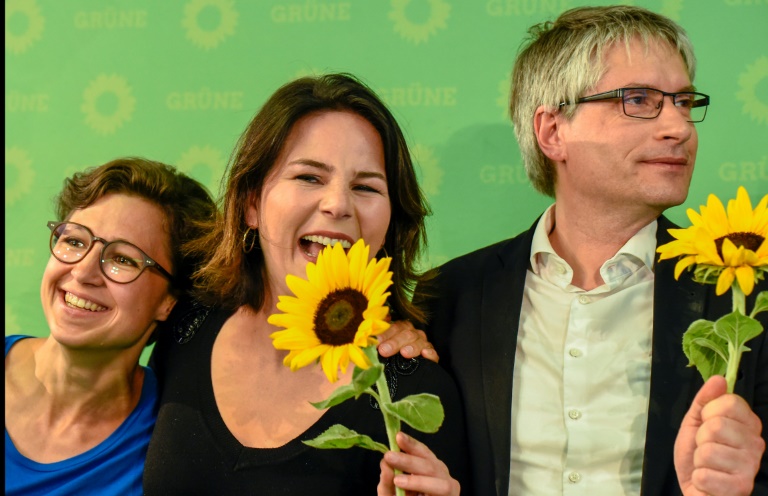Unfortunately, the environment has not been a priority for Egypt. Like in the case of many other developing countries, environmentally sound development is often depicted as being in tension with economic profit.
In the Arab World, a region severely affected by growing environmental problems, an average of less than 1 percent of countries’ national budgets are allocated to protecting the environment.
Many argue that it has become imperative that Egypt gives more attention to the environment at a time when we are working to reconstruct the nation’s political landscape.
The environment under Mubarak
The Green Party, which was founded in 1990, existed as an officially sanctioned political party in Egypt during former President Hosni Mubarak’s 29-year rule, but with only 3000 members it could not claim much influence.
Speaking to Al-Masry Al-Youm, Abdel Moneim al-Aasar, head of Egypt's Green Party, explained the reasons for the party’s historical weakness. One reason was that the ruling National Democratic Party (NDP) overpowered all others. Also, according to al-Aasar, the Egyptian Green Party received a meager LE100, 000 a year from the government. After covering their expenses — such as rent and employee salaries — less than LE20,000 would remain each year, thus rendering them financially crippled.
But environmentalists argue a more fundamental reason lies behind the party’s weakness. Their view is that the party’s manifesto is both vague and superficial, thus giving them poor standing within environmental and political platforms.
On the other hand, at the executive level, as late as 1997, Egypt’s first Minister of State for Environmental Affairs (MOE) was hired. A position currently held by Maged George. With a background in the military, George was appointed to this position in 2004 by former Prime Minister Ahmed Nazif.
Since 1982, the Egyptian Environmental Affairs Agency (EEAA), serving as the executive arm of the MOE after the latter’s creation, has constituted the national authority in charge of promoting environmental cooperation, alongside relevant regional and international organizations, between Egypt and other countries. Other functions of the EEAA include: formulating environmental policies, preparing plans to achieve environmental protection through environmental projects, and following-up on the implementation of projects.
But with the on-going prevalence of many environmental problems — including high levels of pollution and the degradation of Egypt’s natural resources — critics argue that the work of both the MOE and the EEAA falls short of Egypt’s needs. Their shortcomings are manifold.
According to Ihab Shaalan, an environmental consultant, Egypt lacks a clear environmental policy at any level. In his words, “Environmental work takes place without any strategic framework.” Sharif Elmusa, political science professor at the American University in Cairo (AUC), adds that this absence is the outcome of environmental laws and policies that have been put in place “simply as a response to donors’ financial incentives and not in response to domestic needs.” He explains this shortcoming resulted from the fact that “there was no domestic ‘demand,’ no pressure from the public or from [local] environmental organizations.” Ahmed al-Dorghamy, of the Strategic Concerns Program at the Centre for Environment and Development for the Arab Region & Europe (CEDARE), goes further by arguing that “there is no environmental policy in Egypt that would not have existed had there been no MOE.”
In light of these words, the alarming rate of environmental degradation witnessed in recent years seems to have been inevitable.
The failure in Egypt’s environmental policy falls within the overall failure of Mubarak’s regime. In the words of Elmusa, “In all, it is not unfair to say that the record of the MOE under George is not different from that of the state apparatus in general — dismal.”
George remains in his position as MOE even after numerous cabinet changes have taken place since the beginning of Egypt’s revolution on January 25, the latest of which included the appointment of Essam Sharaf as prime minister.
Elmusa explains that “by keeping George as MOE, Sharaf may give the impression that the environment won’t be a salient issue in the coming period. This would be a mistake. Egypt is basically a desert country and its environment is fragile, and damage is generally irreversible. Economically, pollution and depletion of resources are costly.”
Moving forward
In the words of Shaalan, “We need to start by opening up a national dialogue to develop a strategic framework for Egypt’s environmental policy that is streamlined within all government institutions and policies.” That way, we would revoke the existing environmental policy which exists as an ad hoc response to donor requirements.
The MOE and EEAA should be re-structured to give them more power and relevance. Hadeer al-Shafie, an environmental researcher, makes the case: “Clearly, bridges between policy design and policy implementation have been severed in the case of Egypt’s environmental policy. We need to restore these missing links. This requires appointing a MOE who is sincere enough to put Egypt's environmental issues onto the national agenda. This could begin firstly by integrating the MOE’s work into economic, industrial and trade plans.” As a parallel step, a plan of action is needed in order to address urgent environmental issues.
In recent days, some initiatives have materialized, but not at the government level. The NGO Habi Center for Environmental Rights has begun to put in place a plan of action to address what they view as the most pressing environmental problems. As a separate initiative, a group of young professional environmentalists have been working together to establish a new Green Party while the already existing Green Party is looking to revamp itself.
For those seeking to partake in Egypt’s environmental movement, there are options at hand, and hopefully, more options will become available in the near future.




